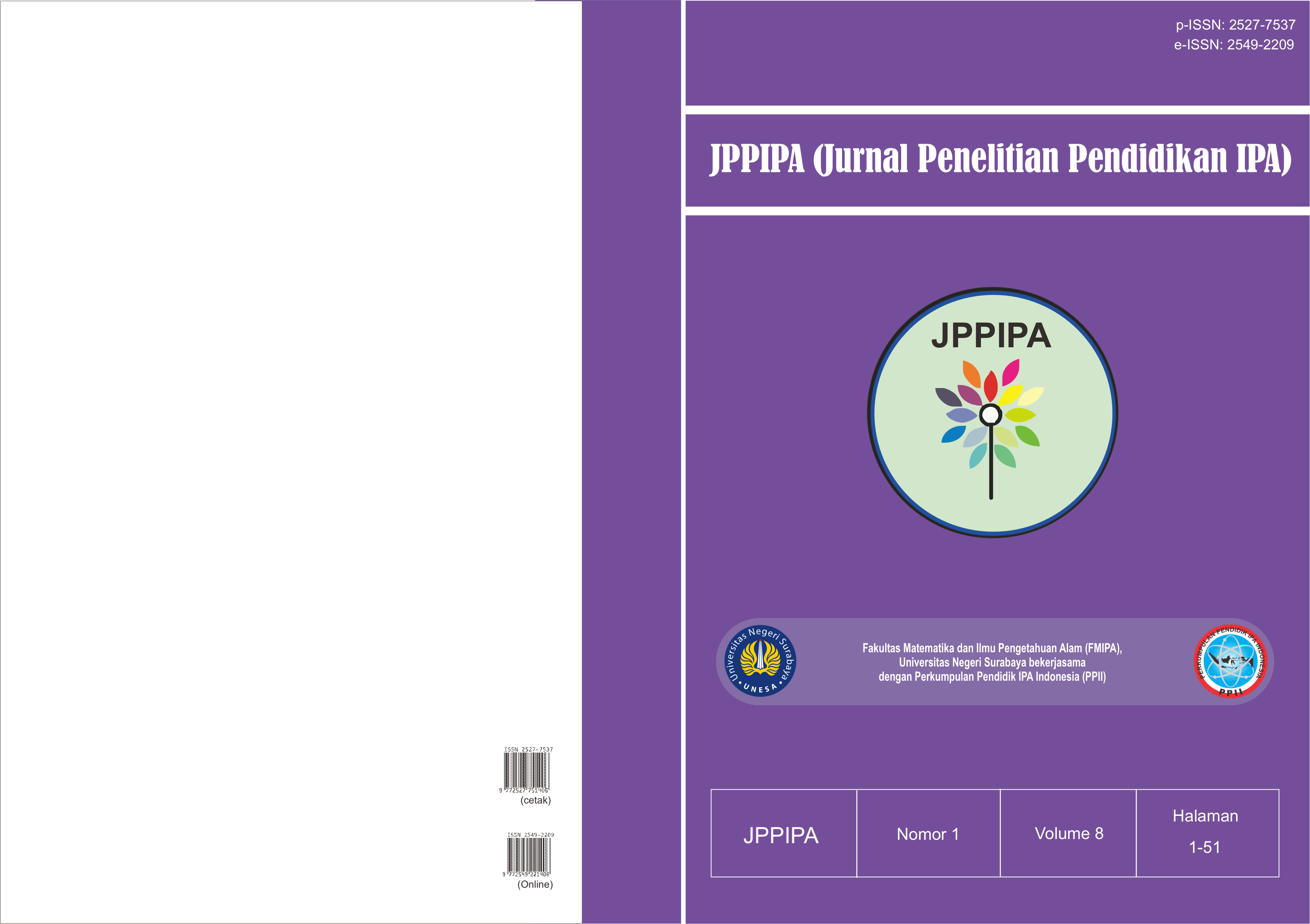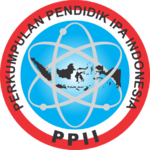THE INFLUENCE OF STRATEGY RELATING, EXPERIENCING, APPLYING, COOPERATING, TRANSFERRING (REACT) ON SCIENCE LEARNING OUTCOMES OF FIFTH GRADE ELEMENTARY STUDENTS VIEWED FROM CRITICAL THINKING ABILITY
DOI:
https://doi.org/10.26740/jppipa.v8n1.p1-10Keywords:
REACT, Critical Thinking Ability, Science Learning OutcomesAbstract
This study was conducted with the aim of analyzing the influence of the use of Relating, Experiencing, Applying, Cooperating, and Transferring (REACT) strategies on science learning outcomes in terms of students' critical thinking skills. In this research, it discusses the importance of teacher accuracy in choosing learning strategies, namely between REACT and conventional strategies and the importance of teachers to know student characteristics, one of which is the ability to think critically in improving student learning outcomes. The population in this study was all fifth grade elementary school students in Ciruas District, Serang Regency, Banten Province. Samples were taken using purposive sampling techniques totaling 62 students. Data on science learning outcomes are collected using the test method. Meanwhile, data on students' critical thinking ability were collected using the questionnaire method as preliminary data to identify students' critical thinking abilities. The data were analyzed using ANOVA with a 2 x 2 treatment design and continued using the Tukey test. The results showed that: (1) there was a difference in the influence between the use of REACT learning strategies compared to conventional learning strategies on science learning outcomes (F=59.294; p<0.05), (2) there were differences in science learning outcomes between students who had high critical thinking skills and students who had low critical thinking skills (F=6,588; p <0.05), (3) there is an influence of interaction between learning strategies and students' critical thinking ability on student science learning outcomes (F=80.706; p<0.05), (4) for students who have high critical thinking skills, science learning outcomes are higher when taught with REACT strategies compared to conventional strategies (F=16.684; p<0.05), and (5) for students who have low critical thinking skills, science learning outcomes are absent differences between students taught with conventional strategies compared to REACT strategies (F=1.283; p>0.05). So, it can be concluded that there is an interaction between learning strategies and students' critical thinking skills and to improve science learning outcomes in fifth grade elementary schools, the use of REACT strategies is more appropriately taught to students who have high critical thinking skills.
References
Crawford, M. L. (2001). Teaching Contextually. 24.
Danver, S. L. (2016). Contextual Teaching and Learning. In The SAGE Encyclopedia of Online Education. https://doi.org/10.4135/9781483318332.n86
Sanjaya, W. (2010). Educational Process Standards-Oriented Learning Strategies. System.
Taraufu, A. F., Gumolung, D., & Caroles, J. (2020). The Effect of Implementing Learning Strategi REACT (Relating, Experiencing, Applying, Cooperating, and Transferring) Towards Student Learning Outcomes on Acid-Base Concept Material. Oxygenius Journal Of Chemistry Education, 2(2), 52. https://doi.org/10.37033/ojce.v2i2.177
Weinstein, M. (1985). Critical Thinking and Education. In Thinking: The Journal of Philosophy for Children (Vol. 6). https://doi.org/10.5840/thinking19856227.
Downloads
Published
How to Cite
Issue
Section
 Abstract views: 763
,
Abstract views: 763
, PDF Downloads: 926
PDF Downloads: 926












